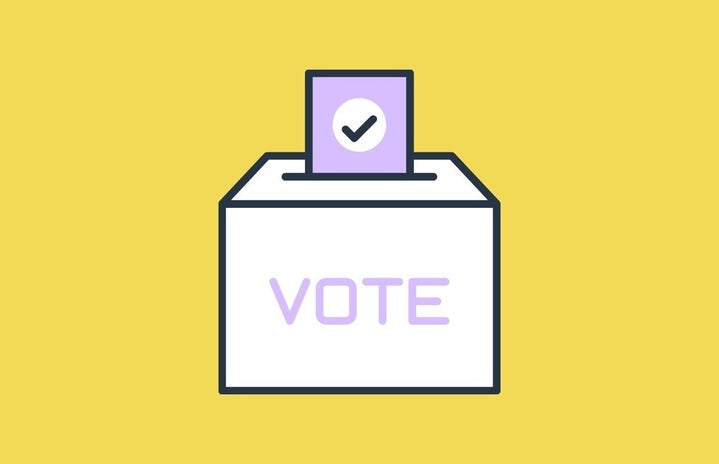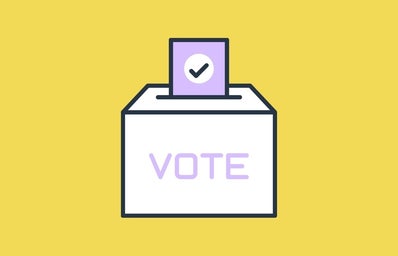To celebrate National Voter Registration Day, Baylor University’s W.R. Poage Legislative Library, the Institute for Oral History and the Women’s and Gender Studies program, in partnership with the Waco NAACP hosted a virtual panel called “19: 100 Years of Preserving Voters’ Rights”.
In honor of celebrating 100 years of voting rights for women, the panel consisted of Dr. Peaches Henry, the president of Waco NAACP, Dr. Christina Chan-Park, president of the League of Women Voters of Waco, and Dr. Andrea Turpin, Associate Professor of History.
The conversation began with a brief history of voting rights in the early stages of our country by Dr. Turpin, who noted that voting was limited to all free men, including men that owned land and excluding slaves.
“Women were under a law called coverture, where they were either legally under their father or legally under their husband. They couldn’t control their own earnings, if they had independent earnings,” Dr. Turpin said.
She noted that women such as Elizabeth Cady Stanton and Lucretia Mott formed reform groups and brought them together for the first woman’s rights convention in the US at Seneca Falls in 1848.
“They wanted to open all the professions to women, to open higher education to women, and to get women the vote. It was the most difficult thing to envision at the time, and the most controversial as to whether or not they should actually push for it at that moment.”
Dr. Turpin also focused on how the suffrage movement lifted the 14th and 15th amendments granted citizenship to former slaves and granted the former male slaves the right to vote. She mentioned that split feminists at the time were solely focused on granting rights to African Americans, and not jeopardizing it by trying to get the women’s vote as well.
“Susan B. Anthony, the famous feminist said, ‘you know, if we have that world male in the 14th amendment, it’s going to take us 100 years to get it out,’ and it didn’t take 100, but it did take 50,” Dr. Turpin said.
Dr. Henry spoke about the whitewashing of women of color out of history in regard to the struggle for the passage of the 19th amendment.
“African American women are always fighting on two fronts, for their rights as African Americans, and also for their rights as women. And because black women had to, first of all, make a space for themselves to actually join the fight, they had to employ different methods and so they confronted white women for not wanting them to be a part of the struggle.”
Dr. Henry noted that figures such as Mary Ann Shadd Cary and Josephine St. Pierre Ruffin were figures that were pushed to the sidelines but contributed greatly and became “instrumental” in securing black suffrage.
“These women are not the only women, there are more women who with suffrage groups up to the 19th’s passage, but they also worked beyond that into the 20th and 21st centuries. They see themselves as planting trees that they may never sit beneath, but that future generations will sit beneath.”
Dr. Chan-Park finished the panel conversation by discussing how the 19th amendment is an “unfinished revolution.”
“There’s still unevenness in women of leadership. Look at your professors, there are still departments at Baylor that might only have one woman, ot all of them have a tenure track. It’s pipeline issue.”
In response to questions from the virtual audience, the panel had this to say:
“If you’re a betting person, don’t bet on my candidates I vote for. They generally don’t win. But that doesn’t mean that I need to give up. I can still write to my representatives and talk about certain issues. Regardless, your vote does matter, and don’t become a one-issue voter,” Dr. Chan-Park said.
“One of the natures of American political culture right now is that it’s highly divided. And if you do not find yourself on the strong right or the strong left, you can sort of throw up your hands and be like, I don’t like any of this,” Dr. Turpin said. “It is acceptable and there is a robust tradition within American history to register your protest about all available options by voting third party. And that means that politicians can’t say you just stay at home because you don’t care, ever. It means you care enough that you went out and said, Give me something different.”
“The people who control those decisions in your life are politicians and so decide if you want to have an impact on those. Understand that local elections are decided by a handful of people who decide to go to the polls,” Dr. Henry stated. “Your vote is your superpower, so use it.”
The Presidential Election is being held this year on November 3. For more information on how to register to vote, visit https://www.vote.org.


